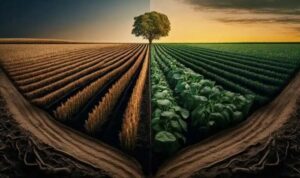Delving into The Rise of Virtual Beauty: Meet the World's Most Beautiful AI Women, this introduction immerses readers in a unique and compelling narrative, with casual formal language style that is both engaging and thought-provoking from the very first sentence.
Virtual beauty has taken the digital world by storm, with AI playing a key role in creating stunning virtual women that challenge traditional beauty standards. As we explore this fascinating realm, we uncover the allure and impact of these AI-generated beauties on society and self-image.
 Virtual beauty refers to the concept of digitally creating or enhancing beauty through the use of technology, such as artificial intelligence (AI). In today's digital world, virtual beauty has become increasingly popular due to the rise of social media platforms, filters, and beauty apps that allow users to alter their appearance in real-time.
. These algorithms leverage deep learning techniques, neural networks, and other AI technologies to analyze facial features, skin textures, and expressions, ensuring that AI women look and behave authentically.
Virtual beauty refers to the concept of digitally creating or enhancing beauty through the use of technology, such as artificial intelligence (AI). In today's digital world, virtual beauty has become increasingly popular due to the rise of social media platforms, filters, and beauty apps that allow users to alter their appearance in real-time.
. These algorithms leverage deep learning techniques, neural networks, and other AI technologies to analyze facial features, skin textures, and expressions, ensuring that AI women look and behave authentically.
 In conclusion, The Rise of Virtual Beauty: Meet the World's Most Beautiful AI Women showcases the intersection of technology and beauty, paving the way for new standards and perceptions. As we anticipate the future trends in virtual beauty and AI women, the discussion continues to captivate and inspire innovation in the beauty industry.
In conclusion, The Rise of Virtual Beauty: Meet the World's Most Beautiful AI Women showcases the intersection of technology and beauty, paving the way for new standards and perceptions. As we anticipate the future trends in virtual beauty and AI women, the discussion continues to captivate and inspire innovation in the beauty industry.
Introduction to Virtual Beauty
 Virtual beauty refers to the concept of digitally creating or enhancing beauty through the use of technology, such as artificial intelligence (AI). In today's digital world, virtual beauty has become increasingly popular due to the rise of social media platforms, filters, and beauty apps that allow users to alter their appearance in real-time.
Virtual beauty refers to the concept of digitally creating or enhancing beauty through the use of technology, such as artificial intelligence (AI). In today's digital world, virtual beauty has become increasingly popular due to the rise of social media platforms, filters, and beauty apps that allow users to alter their appearance in real-time.
The Role of AI in Creating Virtual Beauty
AI plays a crucial role in creating virtual beauty by providing advanced algorithms that can analyze facial features, skin tone, and other factors to enhance or modify a person's appearance. Through AI-powered tools, individuals can experiment with different looks, hairstyles, makeup, and even undergo virtual cosmetic procedures to achieve their desired beauty standards.The World's Most Beautiful AI Women
In the realm of virtual beauty, AI has created some stunning female avatars that have captivated audiences worldwide. These AI-generated women possess a unique blend of features that redefine the traditional standards of beauty.Top AI-generated Women in Virtual Beauty
- 1. Ava: Ava is a virtual influencer known for her flawless complexion and striking features. She embodies a perfect blend of elegance and modernity.
- 2. Luna: Luna is an AI model with ethereal beauty, characterized by her mesmerizing eyes and graceful demeanor. She represents a new era of digital aesthetics.
- 3. Iris: Iris is a virtual celebrity with a unique charm that sets her apart. Her soft features and radiant smile have made her a favorite among virtual beauty enthusiasts.
Characteristics of AI Women
These AI women possess features that are meticulously crafted to appeal to a global audience. From flawless skin to symmetrical facial proportions, they embody a beauty standard that transcends cultural boundaries.Comparison with Traditional Beauty Standards
While traditional beauty standards often emphasize physical perfection and symmetry, AI-generated women redefine beauty by incorporating elements of fantasy and innovation. They challenge conventional notions of beauty and inspire creativity in the realm of digital aesthetics.Technology Behind Virtual Beauty
The creation of AI women in the virtual beauty world involves cutting-edge technology that combines advanced AI algorithms with sophisticated design tools to develop realistic virtual characters. These AI women are the result of a harmonious blend of artistry and technology, pushing the boundaries of what is possible in the realm of virtual beauty.Advancements in AI Algorithms
AI algorithms have made significant strides in recent years, enabling the creation of lifelike virtual beauty that is almost indistinguishable from real humans- Deep Learning Techniques: AI systems use deep learning to learn from vast amounts of data, allowing them to generate realistic facial features and expressions.
- Neural Networks: Neural networks play a crucial role in simulating human-like behavior and emotions in AI women, enhancing their believability.
- Generative Adversarial Networks (GANs): GANs are used to create high-quality images of AI women, refining their appearance and making them more visually appealing.
Tools and Software
Designing and developing AI women require specialized tools and software that facilitate the creation of stunning virtual characters. These tools enable artists and developers to sculpt, texture, and animate AI women with precision and detail, bringing them to life in the virtual world.Popular tools and software include Autodesk Maya, Blender, ZBrush, and Adobe Photoshop, which offer a wide range of features for character modeling, texturing, and animation.
Impact of Virtual Beauty
Virtual beauty, especially in the form of AI-generated women, has significantly impacted societal standards of beauty, self-image, and self-esteem. As technology advances, the implications of these virtual creations on individuals and society as a whole are becoming more apparent.Societal Impact of Virtual Beauty on Beauty Standards
The rise of virtual beauty has created a new set of standards that are often unattainable in reality. AI-generated women, with their flawless features and perfect proportions, have set a benchmark that many individuals feel pressured to meet. This can lead to unrealistic expectations and a distorted perception of beauty, influencing how people perceive themselves and others.Implications of AI-Generated Women on Self-Image and Self-Esteem
The prevalence of AI-generated women in media and advertising can have detrimental effects on individuals' self-image and self-esteem. Constant exposure to these digitally altered images can create feelings of inadequacy and insecurity in those who do not fit the mold of perfection set by virtual beauty standards. This can lead to issues such as body dysmorphia, low self-esteem, and even mental health problems.Future Trends in Virtual Beauty and AI Women
As technology continues to advance, the future of virtual beauty and AI women is likely to evolve rapidly. We can expect to see even more realistic and lifelike representations of beauty created through artificial intelligence. This raises questions about the ethical implications of perpetuating unattainable beauty standards and the impact it may have on individuals' mental well-being. It is essential to consider the potential consequences of these advancements and strive for a more inclusive and diverse representation of beauty in the digital landscape.Concluding Remarks
 In conclusion, The Rise of Virtual Beauty: Meet the World's Most Beautiful AI Women showcases the intersection of technology and beauty, paving the way for new standards and perceptions. As we anticipate the future trends in virtual beauty and AI women, the discussion continues to captivate and inspire innovation in the beauty industry.
In conclusion, The Rise of Virtual Beauty: Meet the World's Most Beautiful AI Women showcases the intersection of technology and beauty, paving the way for new standards and perceptions. As we anticipate the future trends in virtual beauty and AI women, the discussion continues to captivate and inspire innovation in the beauty industry.







